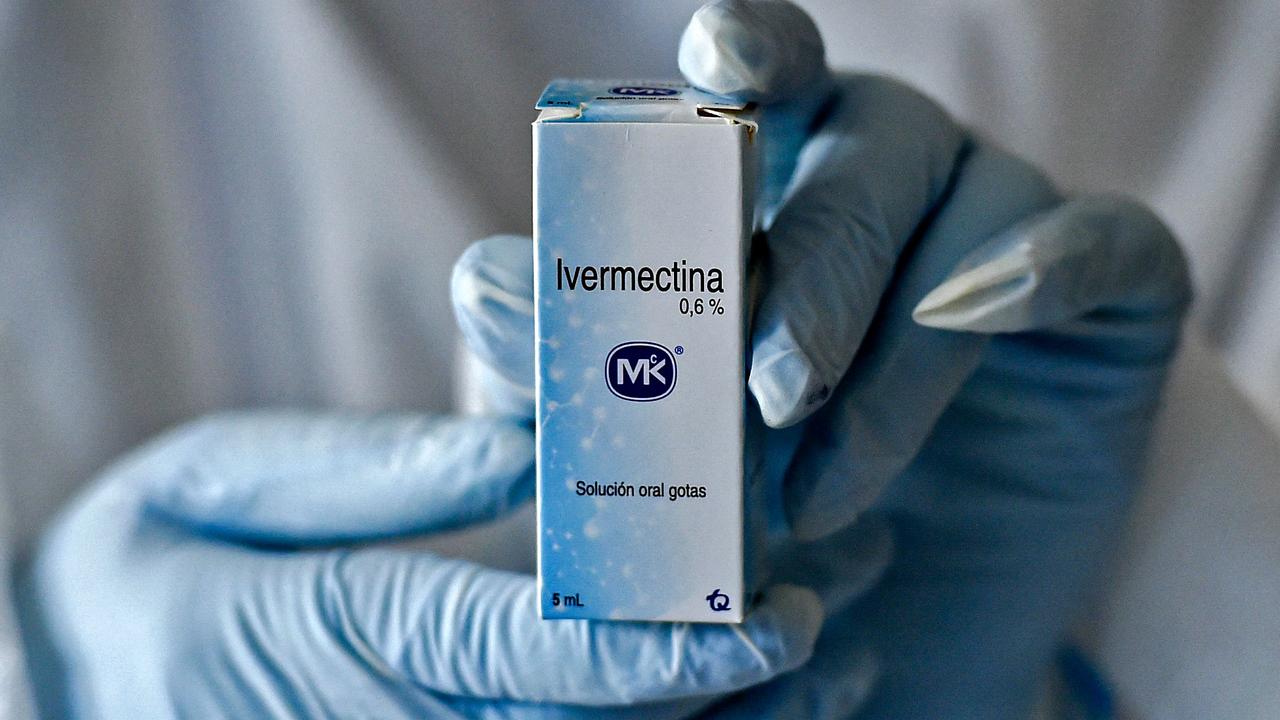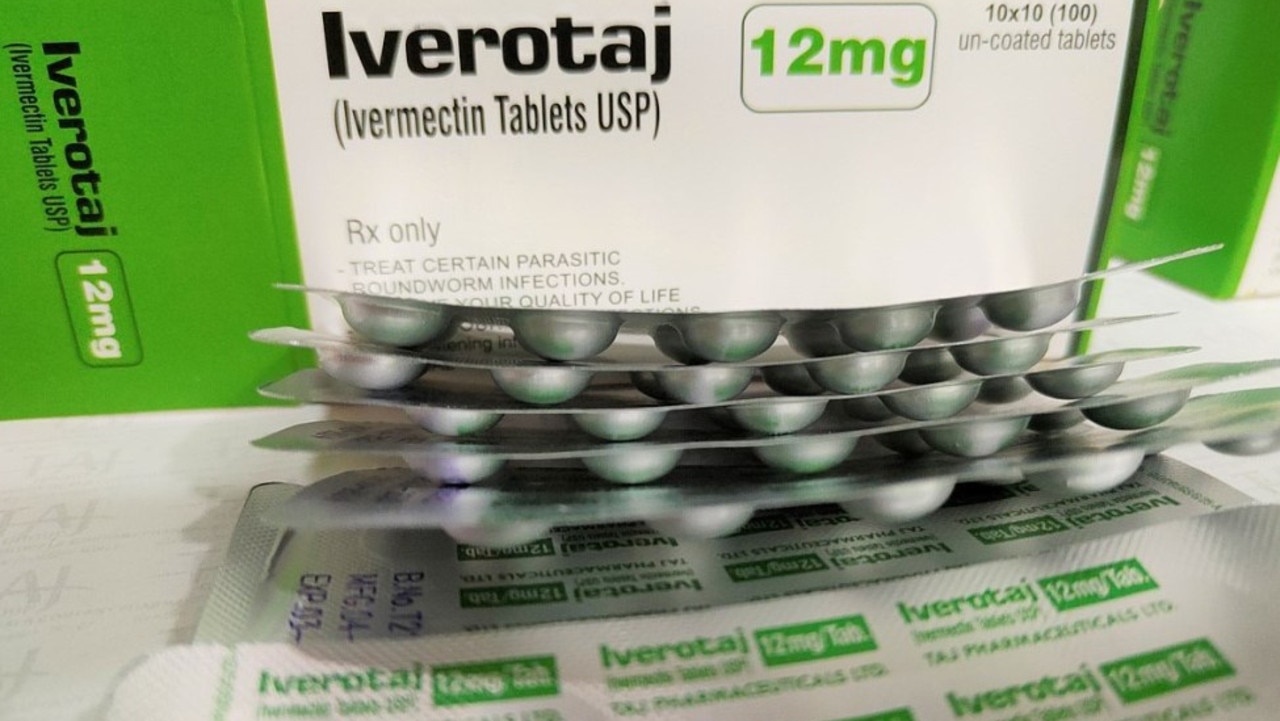Australia’s role in creating hype around ivermectin as a Covid ‘cure’
Australia will likely be ‘embarrased’ by its role in hyping up a controversial drug as a treatment for Covid, one expert says.
A jaw-dropping Australian study touting the effects of Ivermectin on Covid-19 should never have been published and will go on to embarrass the nation, a leading academic has said.
Ivermectin gained infamy after a Monash University study published in Antiveral Research journal in April last year pointed to its potential as a Covid-19 treatment. At that time it was commonly used to treat worms in animals, and for scabies and certain parasitic infections in humans.
The study reported lab experiments showed ivermectin eliminated Covid cells in 48 hours and provided hope for a quick and inexpensive cure to the virus that had begun to ravage the world.
But more than a year after the study was published, sparking a worldwide sensation, there remains scant evidence the drug is effective despite its continuing popularity.
University of NSW researcher and medical doctor Kyle Sheldrick told the Sydney Morning Herald he believes the preclinical work about ivermectin should never have been published.
“The university was aware that there were problems with this research before it was published, but it went ahead anyway. And the truth is that in the fullness of time, Australia will be embarrassed by this story.”

Part of the issue is the amount of ivermectin required to kill the virus in a test tube is much higher than the dosage approved for use in humans.
Veteran scientist Craig Rayner, who was asked to review the results before they were published, told the Herald he was surprised they were released.
“It was incredibly hyped,” Dr Rayner said. “I knew it was going to start a fire.”
“It’s not the best thing for Australia to become known for in terms of its contribution to the pandemic,” Dr Rayner said.
In a statement to the Herald, Monash said it remained committed to making its research known in a timely manner.
“It is important that significant research findings – particularly during times of global crises like COVID-19 – are shared with the broader research and medical community to enable a greater effort to solve such problems,” the statement said.
The publication of Monash’s study on ivermectin caused a sensation and researchers immediately started fielding calls from around the world about the findings.
While the lead author, Dr Kylie Wagstaff, was careful to point out that further pre-clinical testing and clinical trials would be required to prove ivermectin’s effectiveness, many people were not willing to wait.
Demand for the drug surged around the world, including in Australia, further fuelled by now-discredited studies that provided further hope that ivermectin did work.
University of Connecticut Associate Professor of Pharmacy Jeffrey R Aeschlimann explained that he “immediately had serious doubts” about the Monash study when it was published.
“The concentration of ivermectin they tested was 20 to 2000 times higher than the standard dosages used to treat human parasitic infections,” he wrote in a piece for The Conversation this month.
“Indeed, many other pharmaceutical experts confirmed my initial concerns within a month of the paper’s publication. Such high concentrations of the drug could be significantly toxic.”

Other papers purporting to show a benefit from ivermectin have since been withdrawn or have raised concerns about scientific fraud.
This includes a preprint published by US healthcare analytics company Surgisphere shortly after the Monash study, which featured data that was later retracted. The company was also exposed for scientific fraud.
“At the time of this writing, two large randomised clinical trials both showed no significant benefit from the use of ivermectin for Covid-19,” Prof Aeschlimann said.
“Reputable national and international health care organisations, including the World Health Organisation, the Centers for Disease Control and Prevention, the National Institutes of Health, the Food and Drug Administration and the Infectious Diseases Society of America, unanimously recommend against the use of ivermectin to prevent or treat Covid-19 unless in the context of a clinical trial.”
Despite the lack of evidence, demand for ivermectin continues to be strong.
A spokesman from the Therapeutic Goods Administration told news.com.au last week that thousands of complaints have been received in Australia since the organisation banned doctors from prescribing ivermectin for unauthorised purposes, such as the treatment of Covid-19.
He said the TGA had received “a significantly larger than normal number of phone calls and emails” from people objecting to the new rule.
The TGA previously warned about the dangers of the ivermectin after a ten-fold increase in Australians importing it.
The interest in ivermectin has been further fanned by support from politicians including federal MP Craig Kelly, who has been criticised for distributing misleading information about the adverse impacts of vaccines; and George Christensen, who has also expressed concerns about vaccines.






